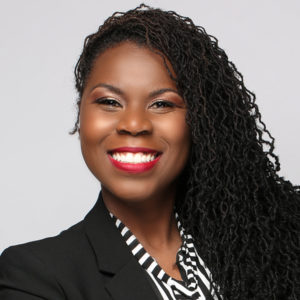We cannot heal a wound without addressing the bleeding. If new schools were the answer, we wouldn’t be where we are.
These were the closing remarks that Alisha Sonnier, St. Louis school board member, delivered to members of the St. Louis Board of Alderman, urging them to support a moratorium on new charter schools in our city. To make her case, Sonnier outlined some important history. Of the more than 30 charter schools that have opened in St. Louis since 2000, half have closed due to academic or financial problems. And even as the number of schools keeps increasing, the population of school-aged kids in our city has steadily declined.
The truth is that members of our community already know this. They’ve seen that, for years, there’s been a well-funded push to open as many charter schools as possible, even though our struggling schools were dwindling, failing and closing on a regular basis. But even as opposition has grown, proponents of education reform plowed ahead. Finally, the people of the city of St. Louis have said enough is enough. Supporters of a traditional, democratically run public education system stood up and demanded a moratorium on opening new schools until the city comes up with a strategic plan for the future of public education before it completely fractures in our city.
The official effort to pause the opening of new schools in St. Louis dates back to last January, when then president of the St. Louis Public Schools Board of Education, Dorothy Rhode-Collins, announced her intent to introduce a resolution calling for a charter school moratorium while the city developed its plan. In her call to action, Rhode-Collins also urged members of the SLPS community engaged in the planning process not to partner with or receive funds from known school privatization organizations like The Opportunity Trust. And in the spirit of transparency, she called on the leadership of the Opportunity Trust to disclose their funders, the grants they’ve made, and the fellows and organizations they have supported over the past three years.
At the same time, campaign races were heating up all across St. Louis. We were electing a new mayor, at-large school board members, and the aldermen and women representing half of the 28 wards in the city. Most of the candidates indicated that they supported the moratorium on new schools. But those “verbal nods” still weren’t translating into action.
Meanwhile, education reform proponents continued to push ahead with their agenda. Unbeknownst to us, organizations that receive funding from the Opportunity Trust, including WEPOWER, Forward Through Ferguson, and the Education Equity Center, had been meeting in secret with the superintendent of SLPS, Dr. Kelvin Adams, to hatch a plan for the city’s schools. Things came to a head last summer, when charter advocates, now calling themselves “Better Futures,” prepared to announce via press release their own city-wide education planning process, conveniently omitting the moratorium on new schools. After school board members requested an explanation, including information on who was funding the initiative, the effort collapsed. The “Better Futures” website and all public traces of their work have since disappeared.
Fast forward to this fall and calls for a moratorium have only gotten louder. At an October hearing, I joined board members, retired teachers, parents with children in both charter and traditional public schools and long-standing residents of St. Louis in testifying on behalf of the resolution. Those who weighed in in opposition were all connected to, and paid by, the Opportunity Trust. There were passionate testimonies, elevated voices, and even tears, but I had prepared myself to see through the distractions. Their talking points were all the same: “The district is failing the children and the parents are crying out for options!” “It is urgent, a matter of life or death, that we continue to open new schools.” “Ditch the idea of the moratorium and let’s have a real conversation about student achievement.” Gladly, the rhetoric was to no avail. The resolution, though symbolic, passed out of committee unanimously and went up for a vote to the full Board of Aldermen the following day.
I was overjoyed at the almost unanimous support of our local elected officials. Their “symbolic gesture” in my opinion was a bold statement in support of our education system that has been ignored for far too long. It is my hope that St. Louis will be the catalyst for unapologetically supporting students and removing barriers, even if it means taking on forces with deep pockets and connections. A week after our aldermen called for a moratorium on new schools in the city, we had our first meeting to come up with a city-wide plan for education in St. Louis. The spirit of a hopeful future was present.

